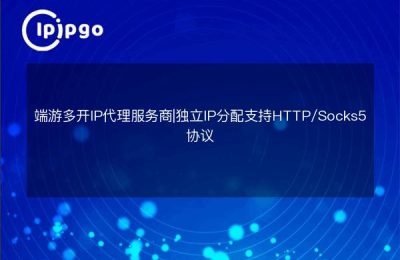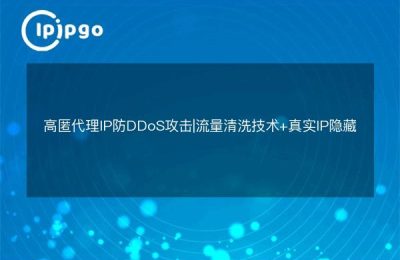
When building your own website, you will often hear the words solo host server and standalone IP. So the question is, how do you tie a standalone IP to a dedicated machine server Don't worry, in this article, I'll take a look at what's going on!
I. Enjoy hosting server what?
First of all, we need to understand the concept of a dedicated hosting server. A dedicated hosting server is a type of server rental that is equivalent to you having the resources of a server all to yourself and not having to share it with other websites. This means that you don't have to compete with other websites for the server's resources and enjoy higher performance and better stability. It can be said that a dedicated hosting server is like your private mansion without having to worry about being disturbed by your neighbors.
Second, the role and significance of independent IP
In order to distinguish itself from other websites, every website needs a unique identification number, which is an IP address. Independent IP means that your website has a separate IP address that is not shared with other websites. Websites with a separate IP have a great advantage in terms of access speed and search engine ranking.
Some of you may ask, why not use a shared IP? Well~ that's like sharing a cell phone number with a love rival, which is not only prone to misunderstandings, but also leads to many embarrassing situations. So, it is very necessary to have a separate IP.
Third, the specific operation of binding independent IP
1. First of all, when you buy a dedicated hosting server, there is usually an option to provide a dedicated IP. You can choose to buy a single dedicated IP address or buy multiple IP addresses, depending on your actual needs.
2. After you have purchased a standalone IP, you need to bind it to your domain name. This is usually done through DNS resolution, which is the process of resolving a domain name to an IP address, and can be understood as a way to link a domain name to an IP address. You can find the DNS resolution related operation options in the domain management interface and set up the settings accordingly.
3. For DNS resolution setup, you need to bind a separate IP address to your domain name. Fill in the relevant information, save the settings and wait for some time before DNS resolution is completed. After completion, you have successfully bound the standalone IP address to your domain name.
IV. Sample code
A simple sample code is given below to help you better understand how to bind a separate IP:
# Import the necessary modules
import dns.resolver
# Define the domain name and individual IP address
domain = "www.example.com"
ip = "192.168.1.1"
# Create a DNS resolver instance
resolver = dns.resolver.Resolver()
# Setting up DNS servers
resolver.nameservers = ["8.8.8.8"]
# Create an A record resolution request
a_record = dns.resolver.query(domain, 'A')
# Modify an A record to a separate IP address
for rdata in a_record.
if rdata.to_text() ! = ip.
rdata.address = ip
# Save Settings
a_record.response.to_text()
The above example is just a simple sample, there are some details to pay attention to in actual operation. For example, DNS server settings, domain name permissions and so on. It is recommended to understand the relevant knowledge before the operation to avoid unexpected situations.
V. Summary
Binding a standalone IP is an important step in using a dedicated hosting server, which can improve your website performance and stability. Through the introduction of this article, I believe you have mastered how to bind a separate IP for a dedicated hosting server.
Of course, each hosting provider may vary, and the specifics will need to be worked out accordingly. I hope this article has helped you to be more comfortable in building your own website. Go for it and take the road to a successful website!








